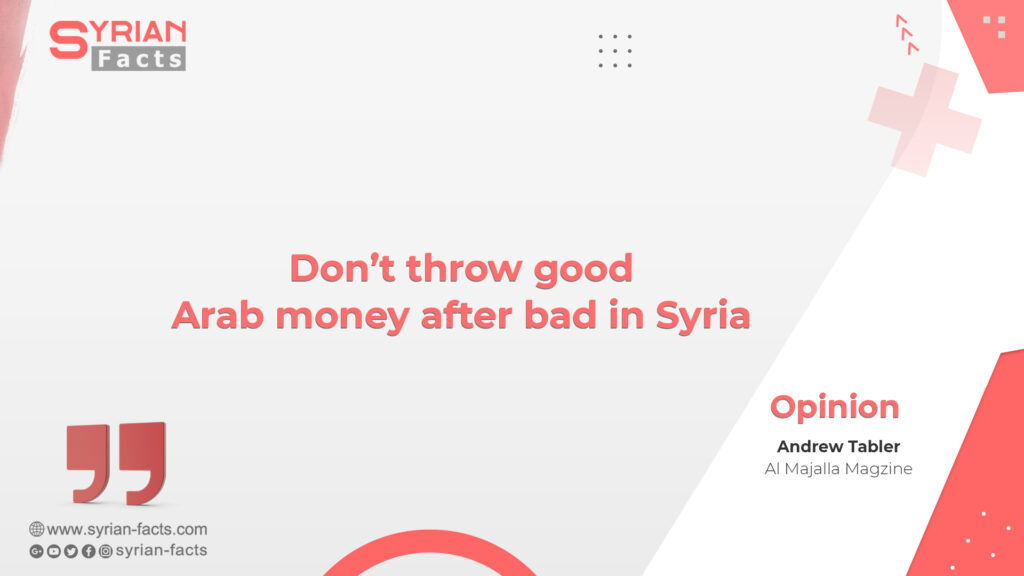Two months following the devastating earthquake that rocked southern Turkey and northern Syria on 6 February, Syria appears to be being welcomed back to the “Arab fold.”
Bashar al-Assad has visited Oman and the United Arab Emirates (including with his wife, Asma), Syrian Foreign Minister Faisal Mekdad has visited Cairo, and Damascus has hosted nine different delegations of Arab officials, including the Foreign Ministers of Egypt, Jordan, and the UAE.
There are reports Gulf heavyweight Saudi Arabia may extend an invitation to Bashar to attend the Arab summit in May.
Beyond the fold, al-Assad also has visited his allies in Moscow and welcomed Iran’s Foreign Minister Amir Abdollahian and Iranian Revolutionary Guard Quds Force commander Esmail Qaani, not one, but two times.
Shortly after US President Biden took office in 2021, Amman and Abu Dhabi launched separate outreach efforts to al-Assad, albeit with slightly different goals in mind.
Hobbled by hundreds of thousands of Syrian refugees, on top of refugees from Iraq and elsewhere, and with a closed northern border that restricted lucrative transit traffic from the Levant to the Arab Gulf, Jordan reopened Jaber — their main northern border crossing with Syria.
Amman, together with Egypt, also developed a scheme to move Egyptian and Israeli natural gas and electricity generated in Jordan across Syria to Lebanon, whose energy sector has essentially collapsed.
In exchange, al-Assad would receive an 8% in kind payment of gas and electricity, which is in very short supply due to wartime damage and sanctions restricting spare parts.
Both approaches went nowhere. Jordan’s northern border was quickly inundated with illicit Captagon and weapons smuggling, leading to several high-profile interdictions in Jordan.
The gas and electricity scheme is hung up because Lebanon’s politicians failed to agree to reforms necessary to receive World Bank funding.
UAE outreach
Abu Dhabi’s outreach to al-Assad seemed more quixotic, but rooted in what al-Assad really wants — money with few strings attached. Throughout the war, the UAE sought to undermine its rival, Qatar, and Qatar’s ally in Syria, Turkey, which holds considerable territory in Syria’s northwest.
In 2018, Abu Dhabi attempted to reopen its embassy in Damascus with the idea that outreach to al-Assad would make Turkey’s position in Syria more untenable.
As tensions with Qatar and Turkey have eased, Abu Dhabi now focuses on reducing Iranian influence — militias and weapons — in Syria. Abu Dhabi understands that Bashar is desperate for the kind of money only an Arab Gulf country can deliver to rebuild Syria
Al Majalla Magzine









Be the first to write a comment.